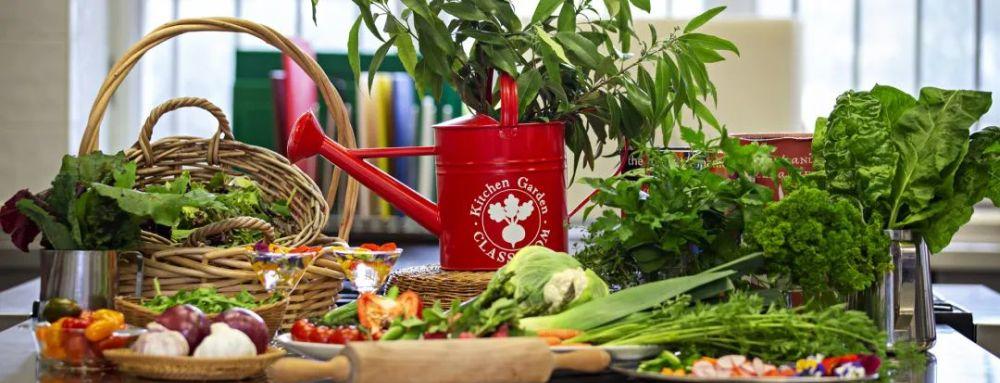Presumably, many parents have encountered the situation of "children eating chickens flying dogs jumping, and mothers are kind and filial to their children when they do not eat". And no matter how much coercion and inducement, children are not willing to eat vegetables!

In fact, as early as the 1990s, Australian chef, restaurateur and food writer Stephanie Alexander began to worry about childhood obesity caused by poor eating habits. "At that time, a lot of children's nutrition improvement projects were launched, but none of them worked," "So I thought, why don't we just teach the children to grow vegetables and tell them how the vegetables come from?" Teach them to make the dishes they want to eat with fresh fruits and vegetables, rather than making them pay attention to the nutritional value of food, which is boring for children after all. ”
She then launched the kitchen garden project nationwide in 2004. She says her original intention is to help children grow their confidence, get new skills, learn to match meals, and make them enjoy by involving them in the whole process of food making.
Studies have shown that when children grow their own vegetables, they are more willing to eat them. A 2007 study in the Journal of the American Dietary Association found that preschoolers involved in fruit and vegetable cultivation were more than twice as likely to eat 5 servings of fruits and vegetables a day than preschoolers who did not participate in fruit and vegetable cultivation.
Alexander says they don't force children to swallow overcooked broccoli, "If they're involved in broccoli cooking, they'll naturally want to eat it." If they grow leafy greens, even if they only add simple seasonings to the dish, they will have a great appetite. ”
For parents, it is taboo to pay attention to the health of diet for children!
"We don't say food 'nutritious' or 'not nutritious'. We only teach the child how to sow the seeds, how to take good care of it, let them watch the young seedling grow, and then harvest the fruits of labor at the most appropriate time. ”
"We involve our children in the cooking process, teaching them to choose recipes, cutting, stirring, baking, and stir-frying."
"We'll help them try and develop new recipes and encourage them to cook with other kids."
Children regularly attend gardening classes where they grow vegetables, weed, compost, water and plan what to plant next. At harvest they can bring the dishes to the school's kitchen for cooking. Then they set the table and sat down to share the food together.
"The kids had a great time," she said. "This is what we call 'happy meal education'"
Parents were amazed by the 180-degree shift in children's attitudes toward food and the enthusiasm for gardening.
"We heard parents say that every vegetable garden day at school, children are eager to jump out of bed in the morning," Alexander says with a smile.
"Parents say their children don't resist vegetables anymore and cooking and eating is now a pleasure for the whole family."
"Parents are surprised to see their children safely use kitchen knives, and even more surprised to see them clean up in time after eating."
At present, the kitchen vegetable garden project has been extended to 1954 schools across Australia. Ms Alexander hopes to be involved in every Australian school in the future.
"The program not only improves eating habits, but also contributes greatly to children's physical and mental health." She said.
In fact, growing vegetables can greatly prolong children's outdoor time. They no longer just hold an iPad and watch cartoons, but have more time to enjoy the sun and feel the nature.
Growing vegetables also increased the amount of exercise in children, and the study found that growing vegetables was a moderate to high-intensity physical exercise for children, especially soil loosening and weeding.
In addition, the microbes in the soil can also help them build a stronger immune system. For example, children who grow up on farms have lower allergy rates.
Not only that, but growing vegetables can also cultivate children's sense of responsibility, patience and love, and alleviate the problem of inattention.
In short, exposing children to green and experiencing planting has many benefits for their growth. Parents with children may wish to give it a try!
Disclaimer: The picture of this article comes from the network, please contact to delete it!